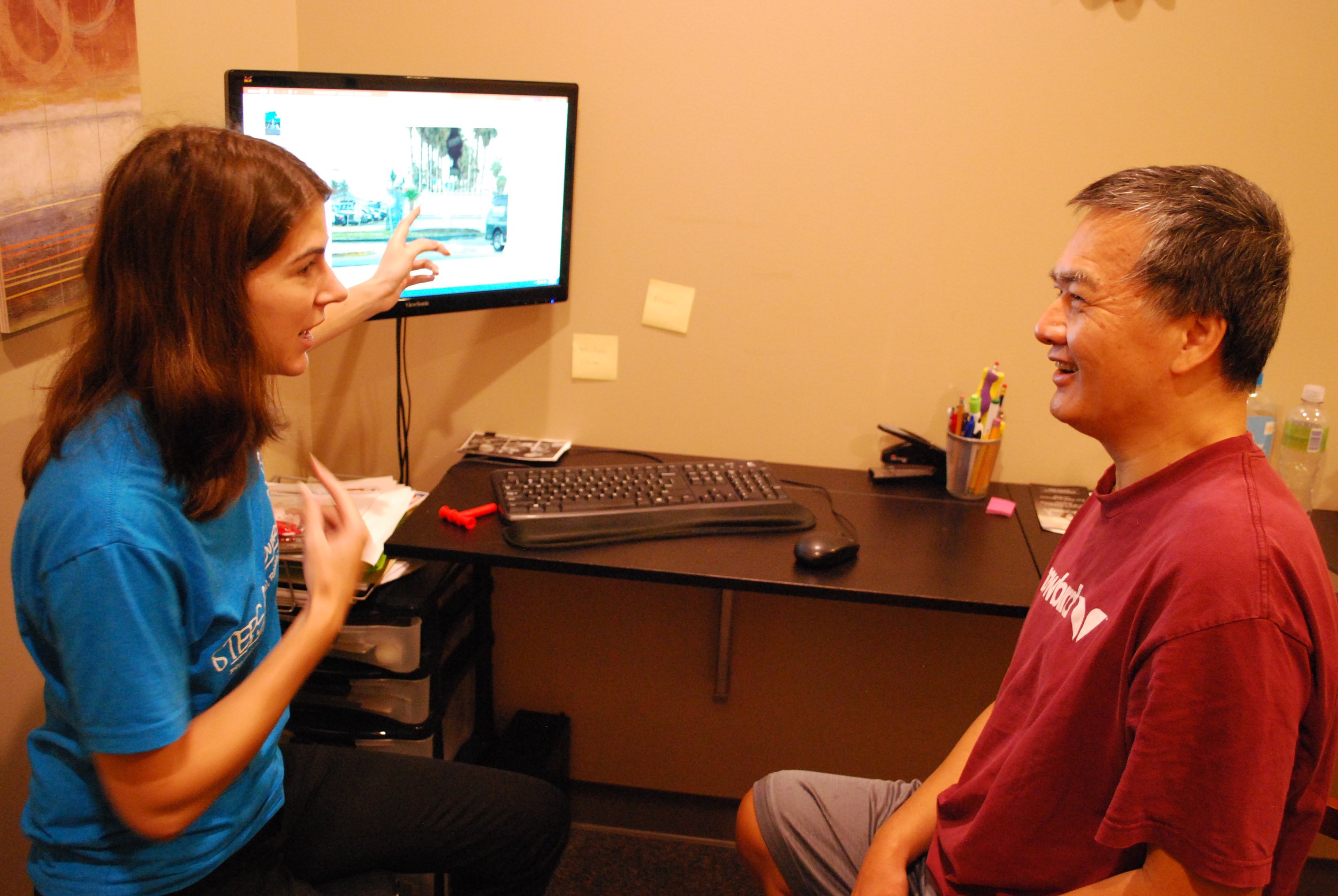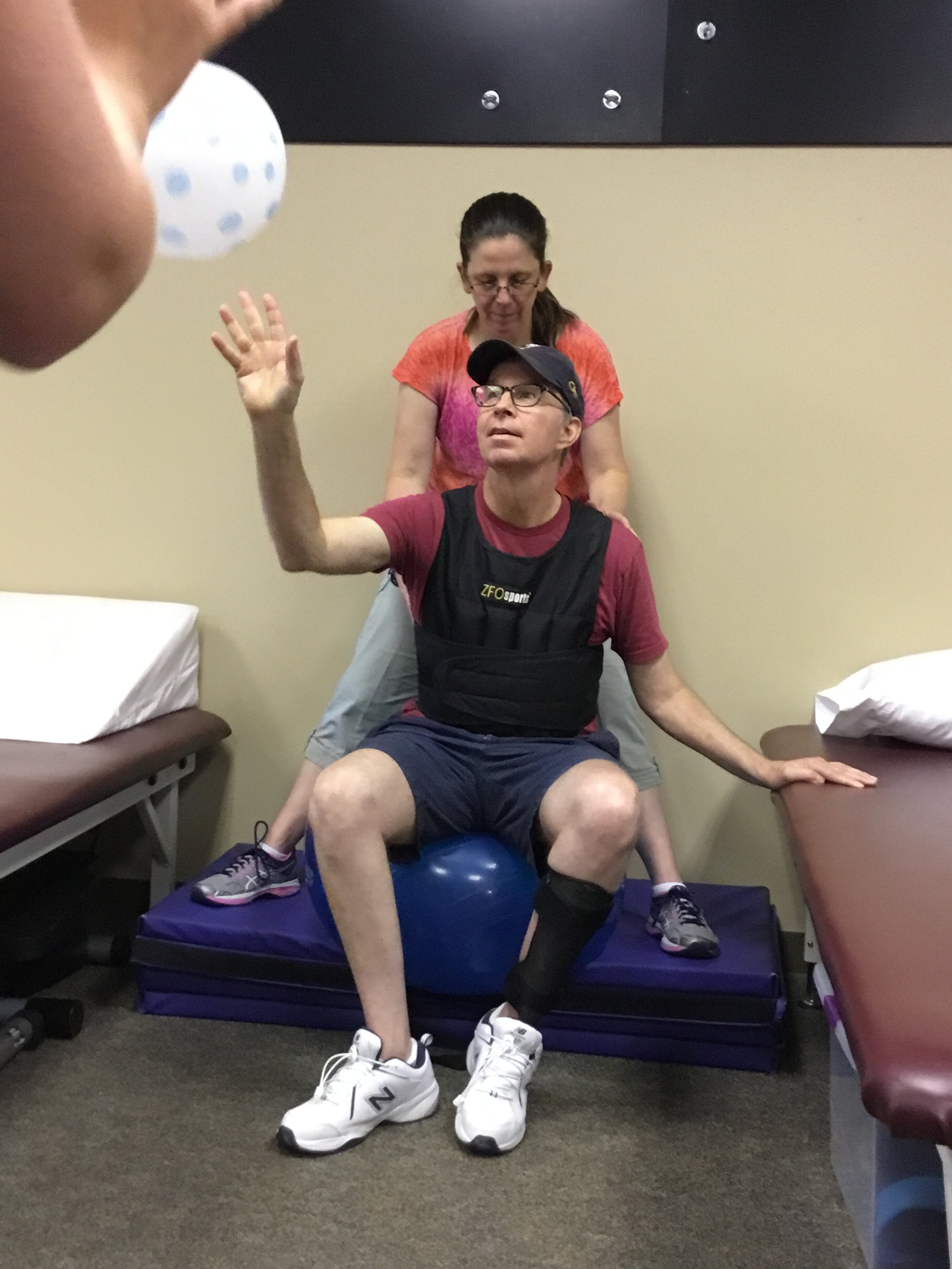Occupational Therapy
Occupational therapy focuses on helping individuals with neurological conditions regain independence and improve daily functioning. It involves personalized treatment plans that address motor skills, coordination, strength, and cognitive abilities, using exercises, adaptive strategies, and assistive devices to support tasks like dressing, cooking, driving, or returning to work. The goal is to optimize physical, mental, and emotional well-being, enabling patients to participate more fully in their daily lives and community activities.
Occupational Therapy may help if you have:
Self-care challenges such as difficulty with toileting, showering, dressing, or feeding
A desire to return to work, school, leisure activities or travel after a medical event
Executive Function challenges (organizing, planning, executing, evaluating)
Difficulty managing your medications
Difficulty with hand coordination or fine motor skills
Concerns about intimacy & sex after stroke/illness/injury
Trouble building a healthy daily routine
Handwriting difficulties
A desire to return to driving after a neurologic event (we can help with clinical testing & guidance)
Trouble caring for a pet after stroke, brain or spinal cord injury
Functional challenges after surgery or other medical event
Sleep challenges or you need help with a sleep hygiene program
Ataxia
Dystonia or Dyspraxia
Functional Neurological Disorder (FND)
Concussion
Parkinson's disease (PD)
Speech Therapy
Neurologic speech therapy focuses on helping individuals with neurological conditions, such as stroke, brain injury, or neurodegenerative diseases, improve their communication, swallowing, and cognitive-communication abilities. Therapists work on addressing challenges like speaking, understanding language, memory, and problem-solving, as well as managing swallowing difficulties (dysphagia). Through targeted exercises, strategies, and techniques, the therapy aims to enhance speech clarity, cognitive functions, and overall quality of life, helping individuals regain their ability to communicate effectively and safely eat or drink.
Speech Therapy may help if you have:
Difficulty with or inability to swallow
Trouble with food going down “the wrong way” or getting stuck in the mouth, throat or chest
Trouble moving your mouth, tongue, and/or lips
Uncoordinated or weak facial muscles
Difficulty making some or all sounds or slurring words
Scratchy or unusual vocal quality
Aphasia
Difficulty understanding spoken or written words
Trouble expressing your wants or needs
Trouble finding the right word(s) or saying the wrong word
Problems with switching sounds in words (“wish dasher" for "dishwasher"
New or increased difficulty with spelling/written word formation or mat
Confusion regarding orientation (who you are, where you are, time/date
Difficulty managing medications
Problems with forgetting important dates and appointment
Increased difficulty paying attention to tasks
Forgetfulness or confusion
Problems following conversations
Physical Therapy
Physical therapy focuses on improving mobility, strength, coordination, and balance through personalized exercises, techniques and strategies. Therapists work to help individuals regain function in affected areas, enhance walking ability, and reduce the risk of falls, all while addressing any muscle weakness, spasticity, or range-of-motion limitations. The goal is to improve independence in daily activities and optimize overall physical functioning, often incorporating both therapeutic exercises and adaptive strategies to help patients return to their routines and participate fully in life.
Physical Therapy may help if you have:
Movement differences or difficulties resulting from Stroke, Traumatic Brain Injury / Acquired Brain Injury
Ataxia
Hemiplegia
Balance issues
Difficulty walking
Trouble going up/down stairs
Difficulty getting down to / up from the floor safely
Impaired body awareness
Endurance challenges


